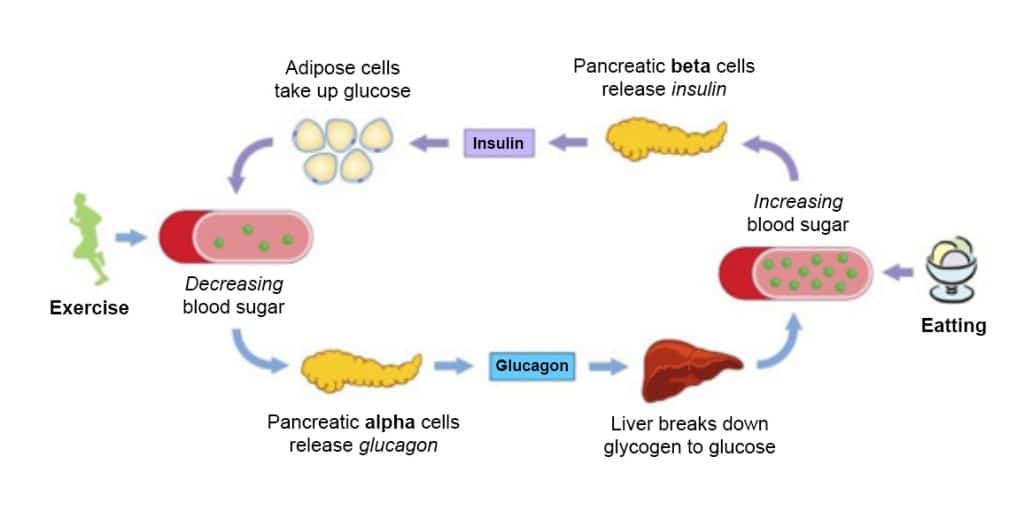What is insulin?
Insulin is a hormone produced by the beta cells of the pancreas. It is released when the body recognises increased levels of glucose in the blood. Its role is to reduce the levels of glucose in the blood by transporting it into the many cells of the body so it can be used for energy production. For the glucose to get into the cell we require a transporter that reacts to the insulin and allows the glucose to cross into the cell.
What is type 2 diabetes?
Type 2 diabetes is the inability of the body regulate blood sugar levels due to resistance to the hormone insulin or damage to the cells of the pancreas that release insulin. With increased resistance, the insulin doesn’t recognise the sugar in the blood or the transporters in the cells have reduced sensitivity to the insulin. Without adequate control of blood sugar levels, there is an increased risk of developing heart disease, thrombosis, hyperglycaemia, hypoglycaemia kidney failure, obesity liver disease and many more complications.
How does exercise help?
Cardiovascular exercise or cardio has many benefits for diabetes. You should aim for at least 30 minutes a day. Some exercises include walking, swimming, dancing, sport and/or forms of physical activity which requires you to have an elevated heart rate for a prolonged period. Some of the benefits include:
• Increased energy consumption reducing blood glucose levels
• Increases insulin sensitivity by increases in the amount of insulin that is presented to the cell
• Reduces fat which decreases inflammation
• Increases blood flow to the working limbs
Resistance training is also recommended as the method by which it increases insulin sensitivity compliments cardio training. It is recommended to include 2-3 days of resistance training per week. The benefits include:
• Increased muscle mass which increases your metabolism (energy consumption)
• Increased transporters in the cells which increases sensitivity to insulin
• Increased strength
• Fat loss
How can an Accredited Exercise Physiologist help?
An accredited exercise physiologist (AEP) is an expert in exercise prescription and education provider for chronic conditions. Diabetes fits under an exercise physiologists scope. The AEP will take an assessment to gauge where your current fitness levels are, you will outline goals together and implement an exercise strategy that you can perform at a gym, home or in your local community.
If you would like to know more about managing your health, book online or contact us to make an appointment with an Accredited Exercise Physiologist.





